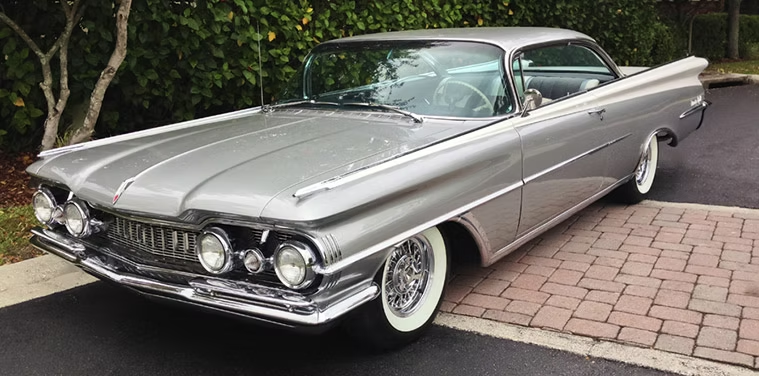Wire wheels have been a staple in the automotive and industrial world for decades. Known for their versatility, durability, and aesthetic appeal, wire wheels are used in various applications, from classic cars to industrial cleaning tools. In this comprehensive guide, we’ll explore everything you need to know about wire wheels, their types, uses, benefits, and maintenance tips.
What is a Wire Wheel?
A wire wheel is a circular tool or component made up of a hub and a series of wire spokes. These wheels are commonly used in two main contexts:
- Automotive Wire Wheels: Found on classic and vintage cars, these wheels are known for their retro aesthetic and lightweight design.
- Industrial Wire Wheels: Used as abrasive tools for cleaning, polishing, and removing rust or paint from surfaces.
Types of Wire Wheels
Wire wheels come in various types, each designed for specific purposes. Below is a breakdown of the most common types:
1. Automotive Wire Wheels
- Knock-Off Wire Wheels: Popular in vintage cars, these wheels are secured with a single central nut.
- Bolt-On Wire Wheels: These are attached using traditional lug nuts, offering a more secure fit.
- Custom Wire Wheels: Designed for modern cars, these wheels combine classic aesthetics with modern engineering.
2. Industrial Wire Wheels
- Crimped Wire Wheels: Ideal for light-duty cleaning and polishing tasks.
- Twisted Knot Wire Wheels: Designed for heavy-duty applications like rust and paint removal.
- Cup Wire Wheels: Used for cleaning large, flat surfaces.
- Bench Grinder Wire Wheels: Mounted on bench grinders for industrial use.
Applications of Wire Wheels
Wire wheels are incredibly versatile and are used in a variety of industries and applications. Here are some of the most common uses:
Automotive Applications
- Enhancing the aesthetic appeal of classic and vintage cars.
- Providing lightweight and durable wheel options for performance vehicles.
Industrial Applications
- Rust Removal: Twisted knot wire wheels are perfect for removing rust from metal surfaces.
- Paint Stripping: Wire wheels can strip paint without damaging the underlying material.
- Polishing: Crimped wire wheels are ideal for polishing metal surfaces to a shiny finish.
- Welding Cleanup: Wire wheels are used to clean welds and remove slag.
Benefits of Using Wire Wheels
Wire wheels offer several advantages, making them a popular choice in both automotive and industrial settings. Here are some key benefits:
For Automotive Use
- Aesthetic Appeal: Adds a classic, vintage look to vehicles.
- Lightweight: Reduces the overall weight of the car, improving performance.
- Durability: Made from high-quality materials that can withstand wear and tear.
For Industrial Use
- Versatility: Suitable for a wide range of cleaning and polishing tasks.
- Efficiency: Removes rust, paint, and debris quickly and effectively.
- Cost-Effective: Long-lasting and reusable, making them a budget-friendly option.
How to Choose the Right Wire Wheel
Selecting the right wire wheel depends on your specific needs. Here are some factors to consider:
| Factor | Automotive Wire Wheels | Industrial Wire Wheels |
|---|---|---|
| Material | Chrome, stainless steel | Carbon steel, stainless steel |
| Size | Depends on vehicle specifications | Depends on the tool or surface area |
| Type of Wire | Spokes for aesthetics and durability | Crimped or twisted for cleaning/polishing |
| Application | Enhancing vehicle aesthetics | Rust removal, paint stripping, polishing |
| Budget | Higher for custom or vintage wheels | Affordable for most industrial applications |
Maintenance Tips for Wire Wheels
Proper maintenance is crucial to ensure the longevity and performance of your wire wheels. Here are some tips:
For Automotive Wire Wheels
- Regular Cleaning: Use a soft brush and mild soap to clean the spokes and hub.
- Inspect for Damage: Check for bent or broken spokes regularly.
- Polish: Use a chrome or metal polish to maintain the shine.
For Industrial Wire Wheels
- Clean After Use: Remove debris and residue after each use.
- Store Properly: Keep in a dry place to prevent rust.
- Replace When Worn: Replace the wheel if the wires are frayed or damaged.
Common Questions About Wire Wheels
1. Are wire wheels durable?
Yes, wire wheels are highly durable when maintained properly. Automotive wire wheels are designed to withstand road conditions, while industrial wire wheels are built for heavy-duty tasks.
2. Can wire wheels be used on all surfaces?
Industrial wire wheels can be used on various surfaces, including metal, wood, and concrete. However, it’s essential to choose the right type of wire wheel for the specific surface.
3. How do I install automotive wire wheels?
Automotive wire wheels can be installed using either a knock-off system or traditional lug nuts, depending on the type of wheel.
Where to Buy Wire Wheels
If you’re looking to purchase high-quality wire wheels, check out our detailed guides and product recommendations on TrendsMag. We provide insights into the best wire wheels for both automotive and industrial use.
Conclusion
Wire wheels are a versatile and essential tool in both the automotive and industrial worlds. Whether you’re restoring a classic car or tackling a heavy-duty cleaning project, wire wheels offer the perfect combination of functionality and style. By understanding the different types, applications, and maintenance tips, you can make the most of your wire wheels.
For more expert tips and product recommendations, visit TrendsMag. Explore our wide range of articles to stay updated on the latest trends and innovations.




